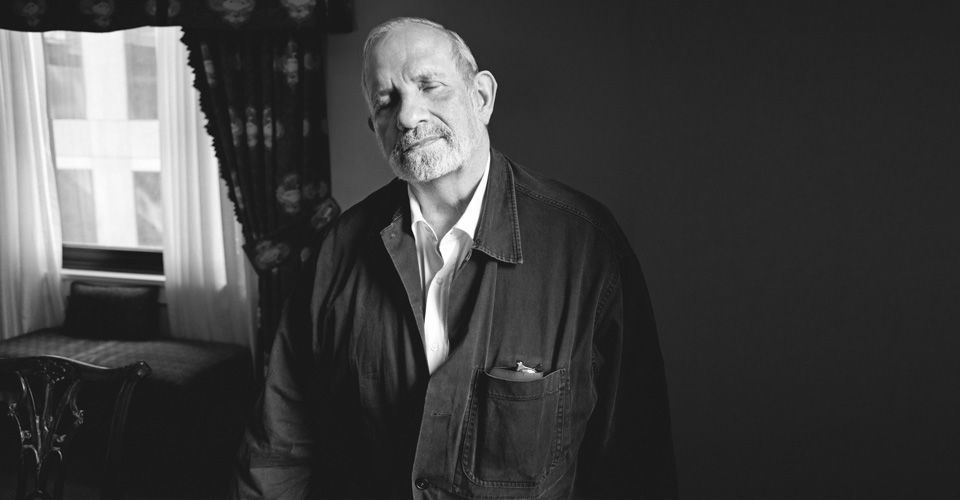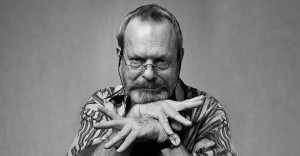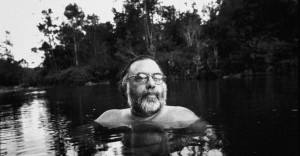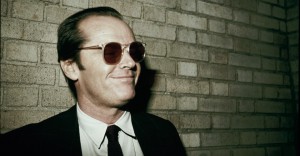Mr. De Palma, can violence in film be beautiful?
It can be quite beautiful. Needless to say, Sam Peckinpah made it quite beautiful. It’s an essential building block to the drama of movies and it can be extremely effective and extremely emotional and extremely dramatic.
What do you think is the best murder scene you’ve ever done?
I guess I would have to say Dressed to Kill, the murder in the elevator. I had a very good idea in terms of Bobbi killing Angie and Nancy witnessing it and the use of the mirrors and the slow motion. I think that’s sort of the bloodiest murder I’ve ever done.
Is it harder for the audience to watch a woman get killed?
If you’re going to follow around somebody to murder, I’d much rather be photographing a woman than a man.
Why?
It goes back to the old horror films with the girl in the negligee walking around the haunted house with a candelabra. They’re a lot more interesting to look at and a lot more vulnerable than if you had Arnold Schwarzenegger walking around carrying a candelabra. You just wouldn’t be too concerned that there would be any problems.
Over 40 years of making films, what has changed about filming a murder?
It’s all done digitally.
Do you miss the old days when you would do those scenes with prosthetics and a lot of fake blood?
No. It’s a big drag. It’s extremely boring. It takes a long time to reset all the prosthetics. At the end of The Fury where I blew up John Cassavetes, I had 8 or 9 high-speed cameras and he explodes. He explodes. And the first time we did it, it didn’t work. The body parts didn’t go towards the right cameras and this whole set was covered with blood. And it took us almost a week to get back to do take 2.
Wow. Did take 2 work out at least?
Yes, take 2 worked out quite well. Nobody had ever done this before. I had these incredible high-speed cameras that the astronauts use and about three of them jammed because they were going so fast. They were all shooting super, super slow-motion – this is in the ’70s – and then it’s all over and you look around and the set is completely in shambles. And everybody goes, “Take 2! See you next week.” (Laughs)
Have you ever left out a violent scene to get a different rating?
I had incredible battles with them back in the ’70s and the ’80s, and even going back to the ’60s. My first couple of movies had X-ratings when the ratings system started in 1968, so I’ve been battling with them all the way up through Scarface, and beyond.
Was Scarface initially rated X?
Yeah, but I was able to beat the ratings board with Scarface. Even though they rated it X, I was able to appeal to the whole committee and we got it passed. There’s a lot of controversy about how Scarface was edited, but in reality, everything I cut out to appease the rating board I put back in and that’s what you see.
Does it make you smile when you see what kind of an influence Scarface still has?
Yeah, but that’s fate or I don’t know what, serendipity, when you have a movie that transcends the decade that it was made and it keeps on going on and on and on. There’s something that connects with it from generation to generation. I mean, Scarface is basically the American Dream told through a gangster saga.
That’s also a big theme in rap music. Do you think that’s why the hip-hop community has such a fascination with the film?
It’s every immigrant’s journey, you know, that goes to the dark side instead of getting a job and an education or whatever. You start dealing with illegal substances and you get very rich, very powerful, and very crazy – very fast. Some rappers have whole rooms dedicated to the film…
How do you explain that?
It just gets into a part of the culture that sort of surprises everyone. My generation used to quote On the Waterfront all the time. Well now they quote the lines from Scarface. Instead of “I could have been a contender,” the Marlon Brando line from the back of the cab, it’s “don’t get high on your own supply” or “first you get the money, then you get the power, then you get the woman.”
Have any rap artists ever approached you to work on projects together?
The only thing that’s happened is that Universal has continually wanted to put a rap score on Scarface and re-release it and I haven’t allowed them to do it.
Well, Giorgio Moroder’s score is already perfect.
Thank you. That’s what I think, too. So, they’re very unhappy with me, because they could obviously make a tremendous amount of money, but I said, “That score’s not being changed.”
I guess you have final cut?
Yeah.
Is final cut necessary to fulfill your vision as a director?
We were very lucky in our generation. We got final cut. We were in the era of the director superstar. Very few directors have final cut today. Obviously Spielberg does and Scorsese, but there aren’t too many. And the new directors are constantly not getting final cut so you have to battle with the studios to make sure that they don’t alter your movie. You can’t make very controversial movies.
Do you always have final cut?
Yeah, except on Get to Know Your Rabbit. (Laughs)
What happened there?
I got fired!
Return to Top

Short Profile
Name: Brian Russell De Palma
DOB: 11 September 1940
Place of Birth: Newark, New Jersey, USA
Occupation: Director





















CARRIE.
DePalma is a god among filmmakers.